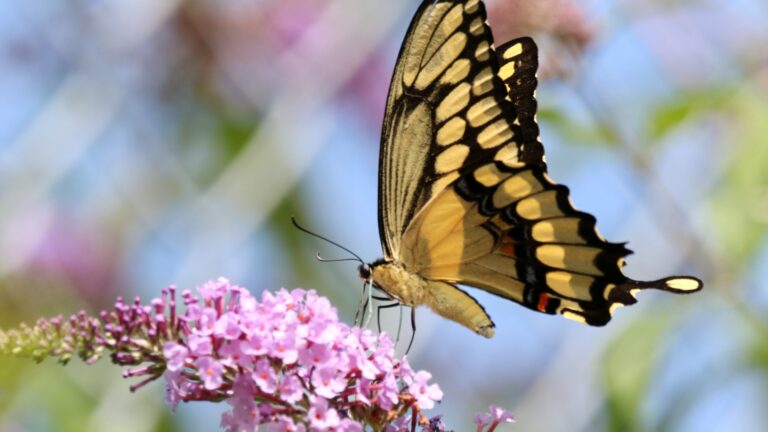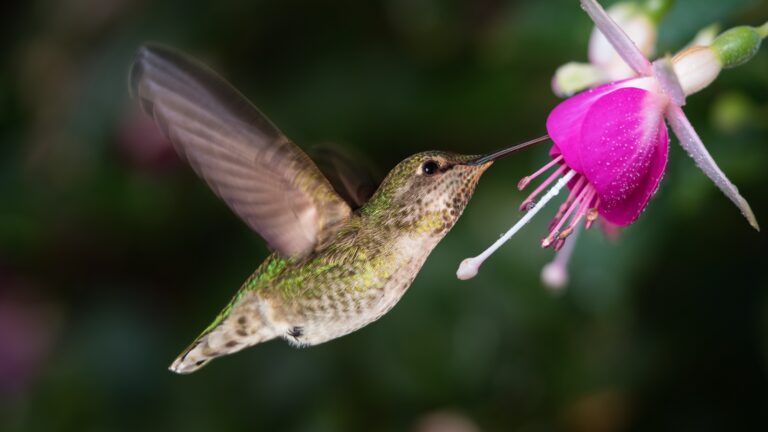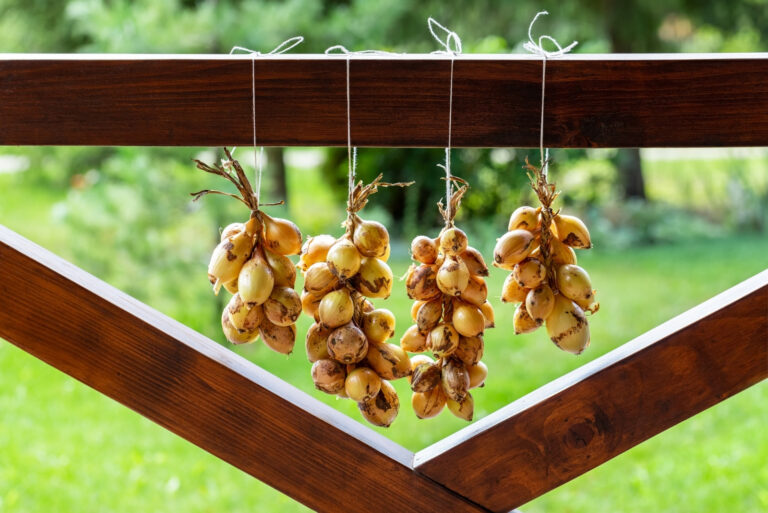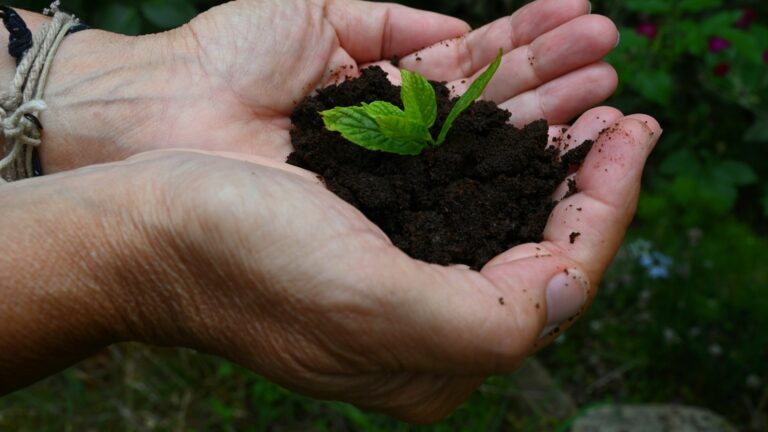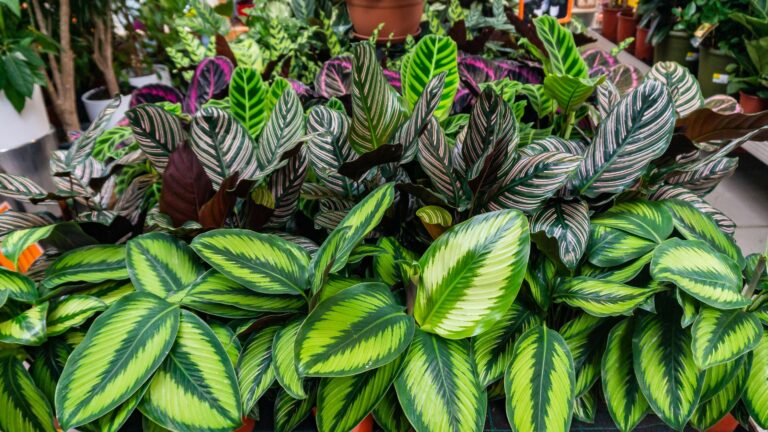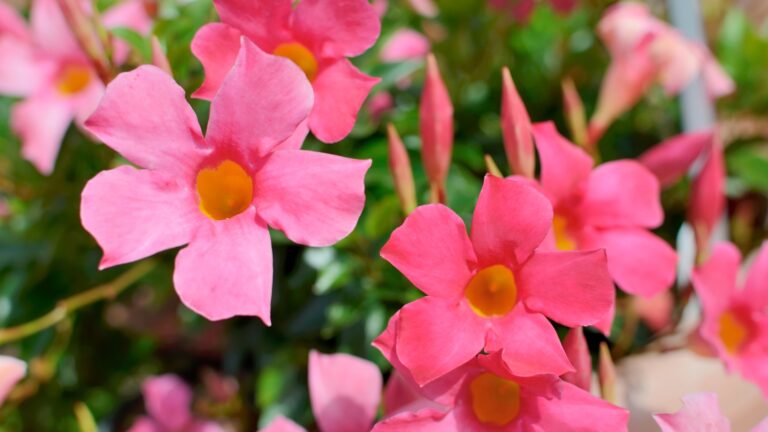9 Smart Reasons To Grow Lavender By Your Patio In Massachusetts
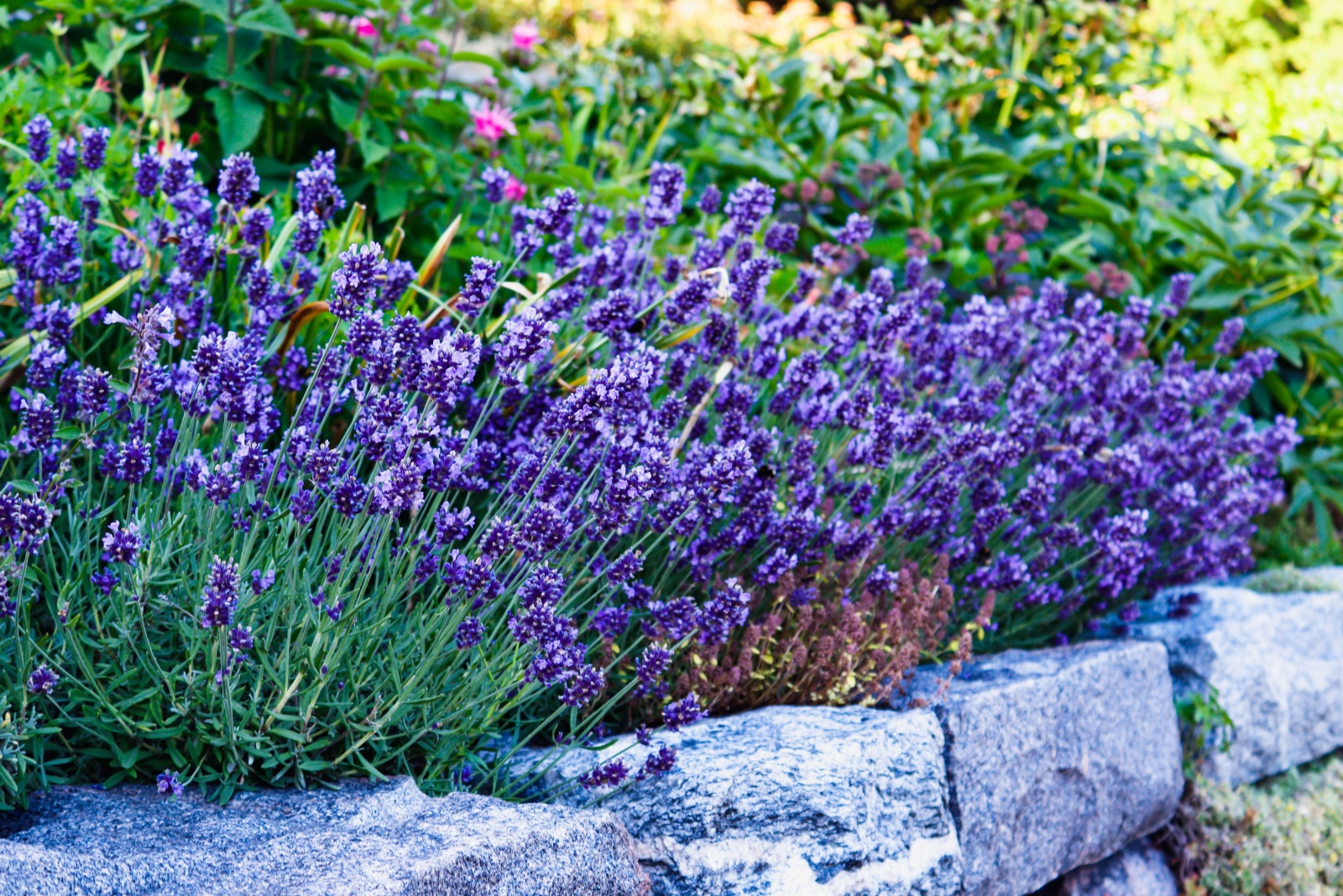
Lavender isn’t just a pretty plant with a nice smell – it’s a powerhouse addition to your Massachusetts patio garden. This hardy herb thrives in our state’s climate when given the right conditions, offering benefits that go way beyond its beauty.
Growing lavender near where you relax outdoors can transform your patio experience in surprising ways.
1. Natural Mosquito Repellent
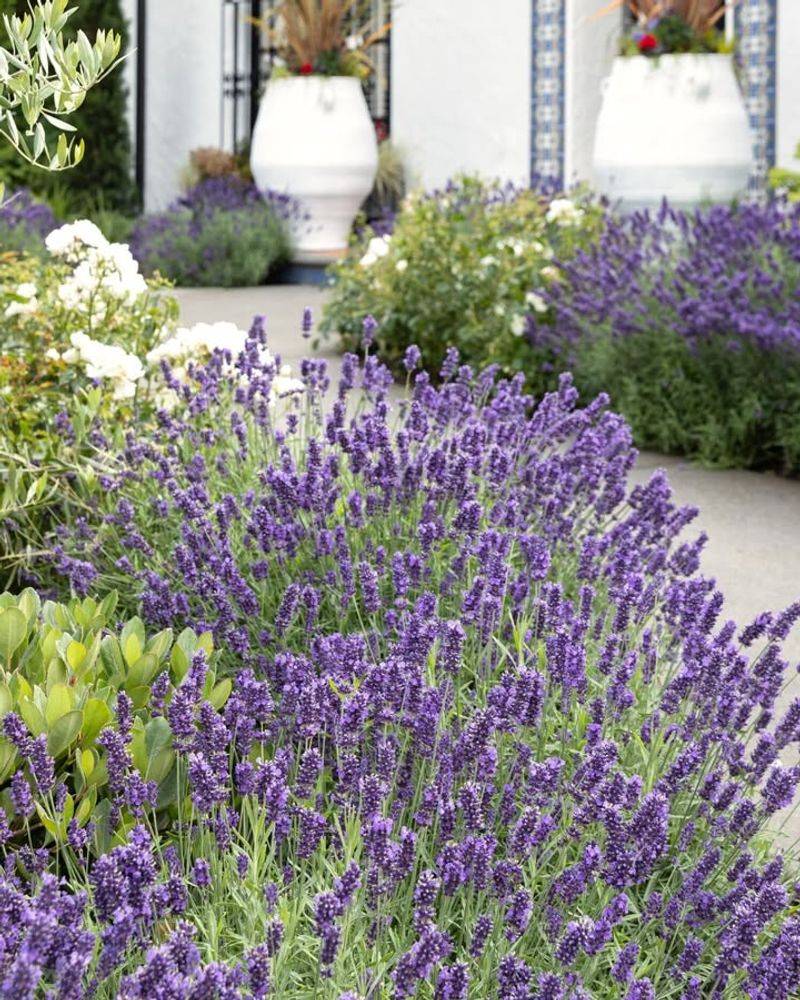
The strong fragrance that makes lavender so pleasant to humans actually repels mosquitoes and other biting insects. Massachusetts summers bring plenty of these unwanted visitors to outdoor gatherings.
Simply brushing against lavender plants releases oils that help keep bugs at bay. Unlike chemical repellents, this natural solution is safe for kids, pets, and the environment.
2. Drought-Resistant Beauty
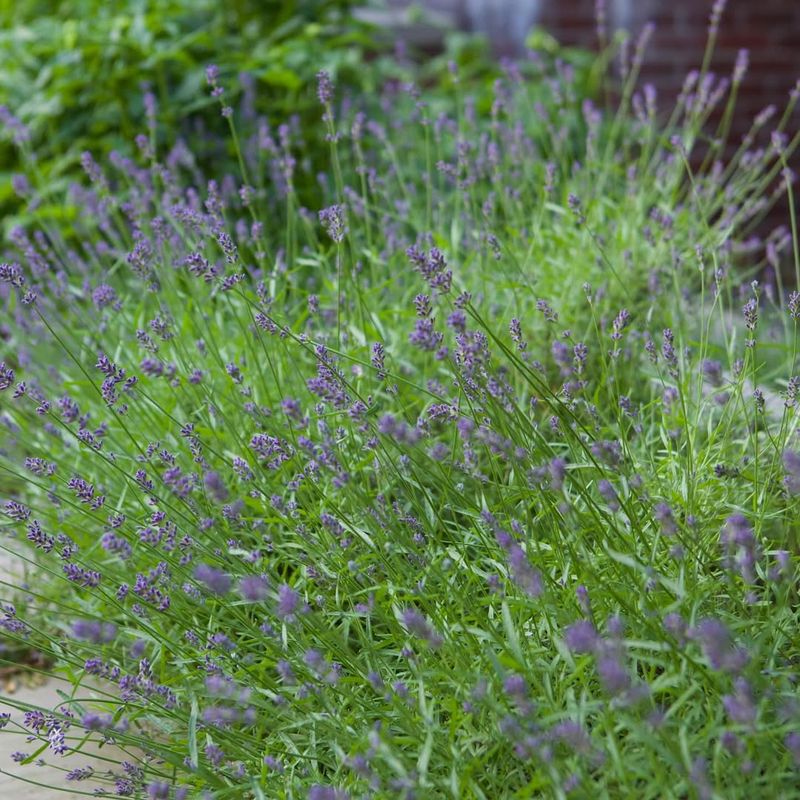
Massachusetts occasionally experiences dry spells, especially in late summer. Lavender’s Mediterranean origins make it naturally drought-tolerant once established, requiring minimal watering compared to other garden plants.
During water restrictions, your lavender will continue thriving when other plants struggle. Its silvery-green foliage stays attractive even when not in bloom, adding year-round structure to your patio landscape.
3. Stress-Reducing Aromatherapy
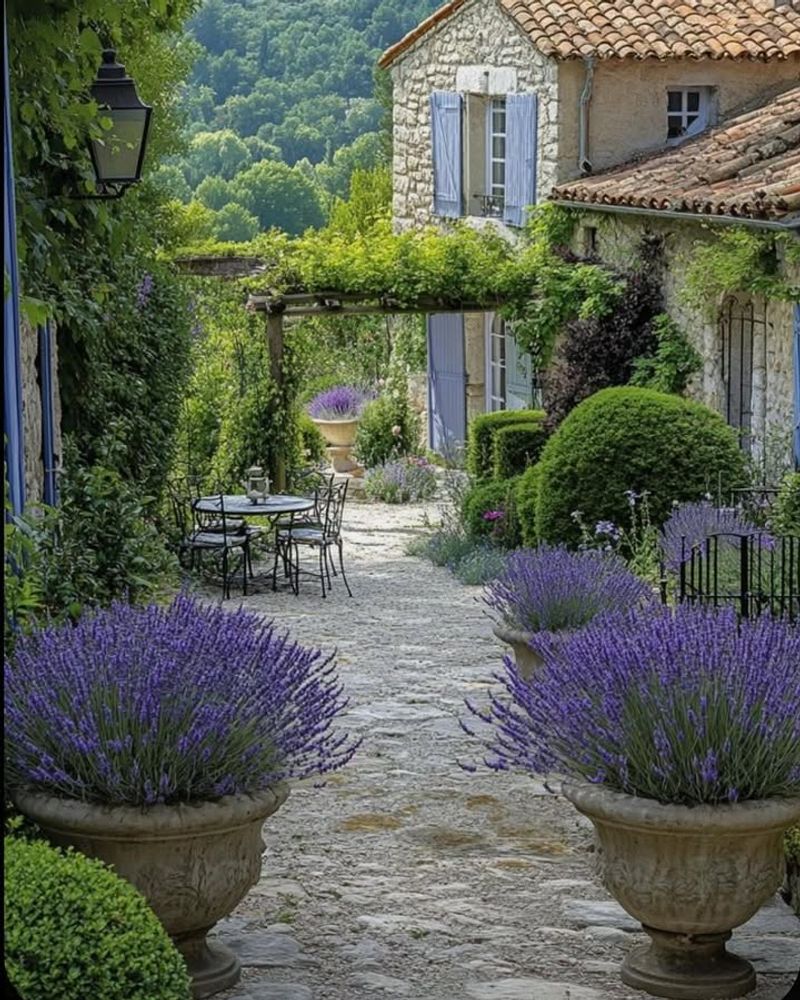
Coming home after a long day? Your patio lavender provides instant aromatherapy. Scientific studies have shown lavender’s scent reduces stress hormones in the bloodstream.
The gentle breeze across your patio will carry lavender’s calming fragrance to your outdoor seating area. Many Massachusetts residents find evening relaxation enhanced by this natural stress-reliever, especially during our region’s sometimes hectic pace.
4. Pollinator Paradise
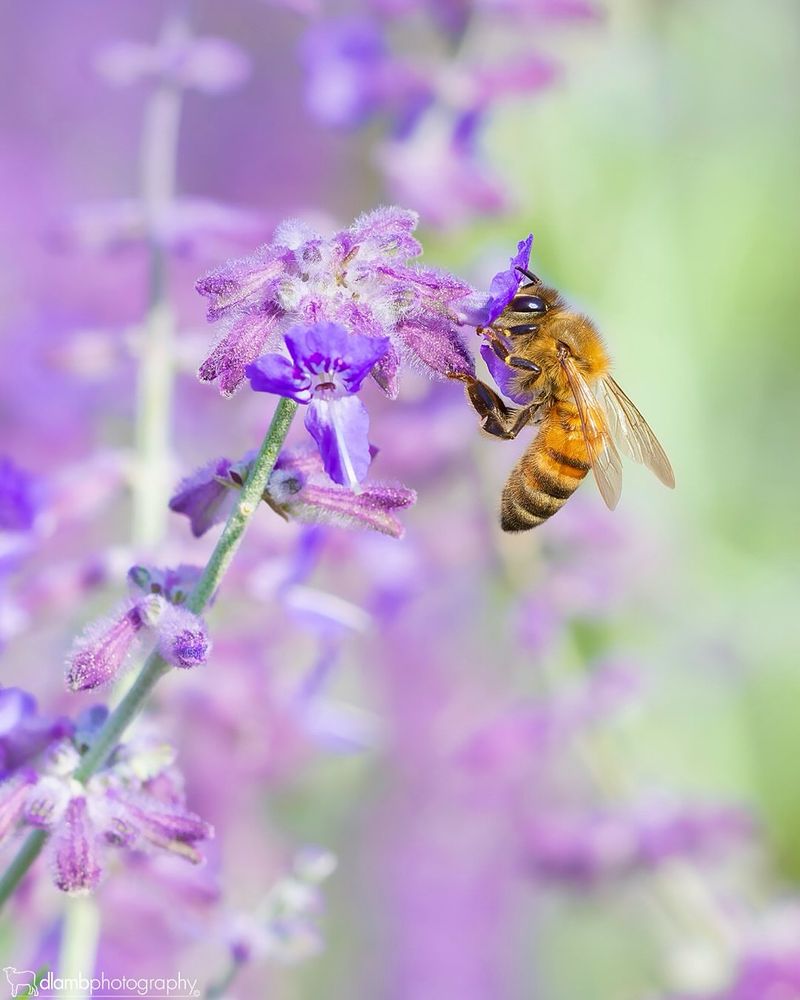
Bees absolutely adore lavender! Massachusetts has seen declining pollinator populations, making bee-friendly plants crucial for our local ecosystem.
Planting lavender creates a feeding station for these important insects. Watch as honeybees, bumblebees, and butterflies visit your patio throughout the summer. The gentle buzzing adds a peaceful soundtrack to your outdoor space while supporting biodiversity.
5. Winter-Hardy Survivor
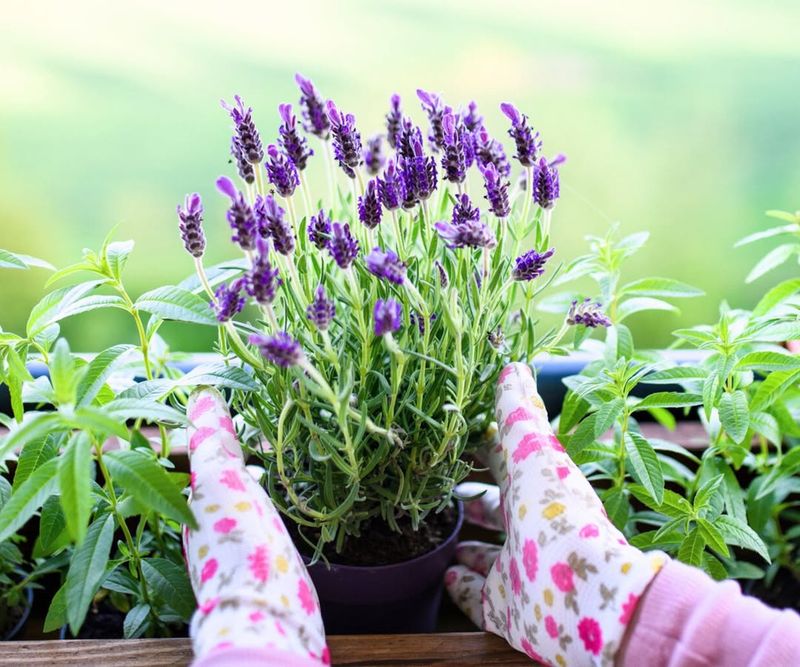
Worried about Massachusetts winters? English lavender varieties like ‘Munstead’ and ‘Hidcote’ can withstand our cold seasons with minimal protection.
Plant lavender in well-drained soil along your patio’s edge where it catches maximum sun. The heat-reflecting properties of patio materials create a microclimate that helps lavender survive winter. Come spring, while you’re still replacing frost-killed plants, your lavender will be ready to thrive again.
6. Culinary Herb At Arm’s Reach
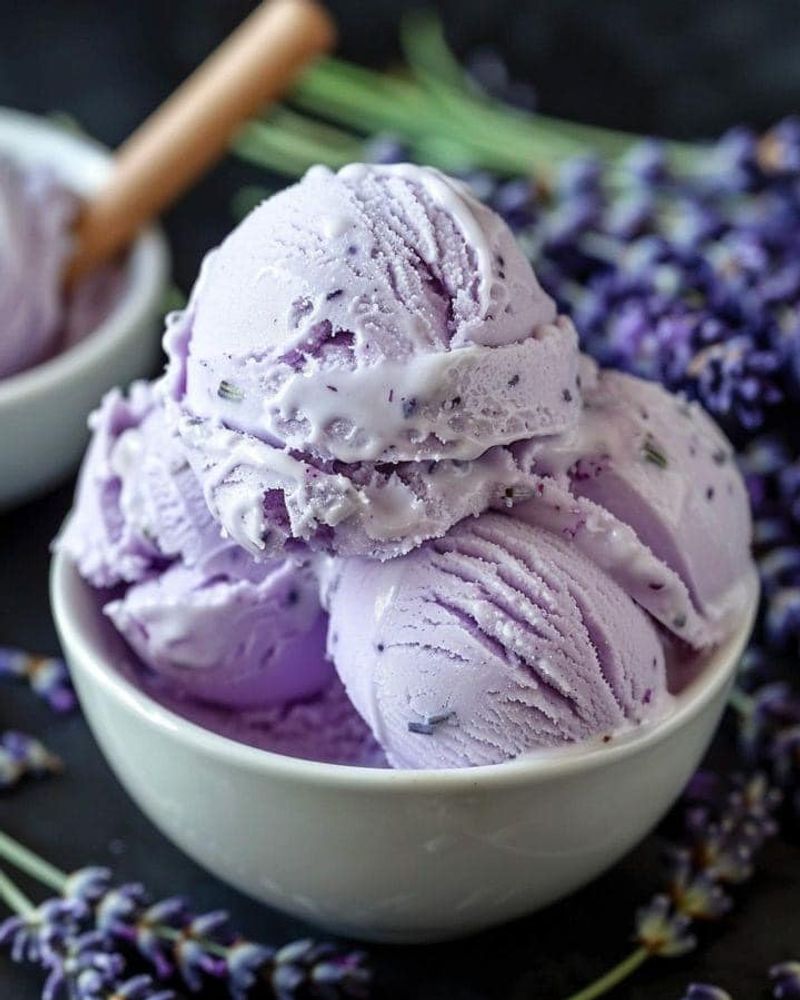
Imagine hosting a summer gathering on your patio with fresh lavender lemonade or lavender-infused desserts. Having this versatile herb steps away from your outdoor kitchen makes culinary experimentation effortless.
Massachusetts’ growing season provides plenty of time for multiple harvests. Clip sprigs for cooking, cocktails, or as an elegant garnish. Your guests will be impressed by the unique flavors that elevate ordinary dishes to gourmet status.
7. Four-Season Visual Interest
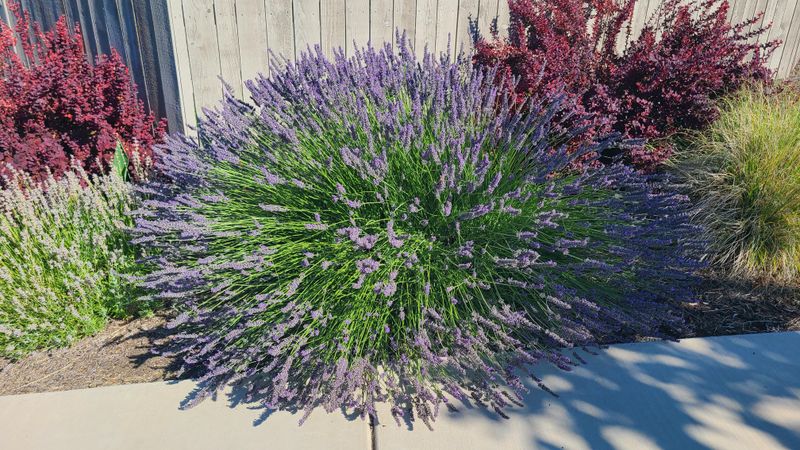
Even dormant lavender adds structure to winter landscapes. The silvery foliage contrasts beautifully with Massachusetts’ snow, while summer brings vibrant purple blooms that dance in the breeze.
Fall showcases dried flower heads that maintain their shape and some color. Spring reveals new growth emerging from woody stems. Unlike many perennials that disappear completely in winter, lavender maintains an attractive presence year-round, keeping your patio area visually interesting regardless of season.
8. Low-Maintenance Time Saver
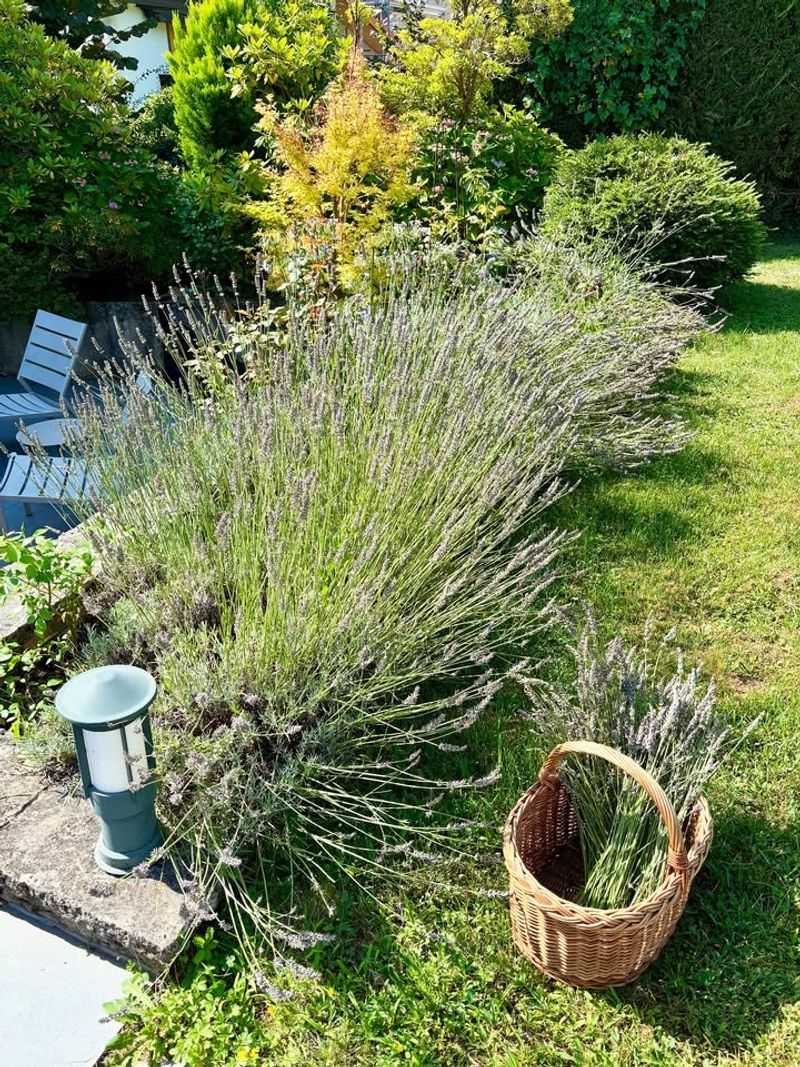
Between work and enjoying Massachusetts’ many seasonal activities, who has time for fussy plants? Lavender requires minimal care once established – just annual pruning and occasional deadheading.
Forget constant watering, fertilizing, or pest management. The plant naturally deters many common garden pests and thrives in poor soil. This resilience makes lavender perfect for busy Massachusetts homeowners who want beautiful patios without spending weekends on garden maintenance.
9. Home Value Enhancer
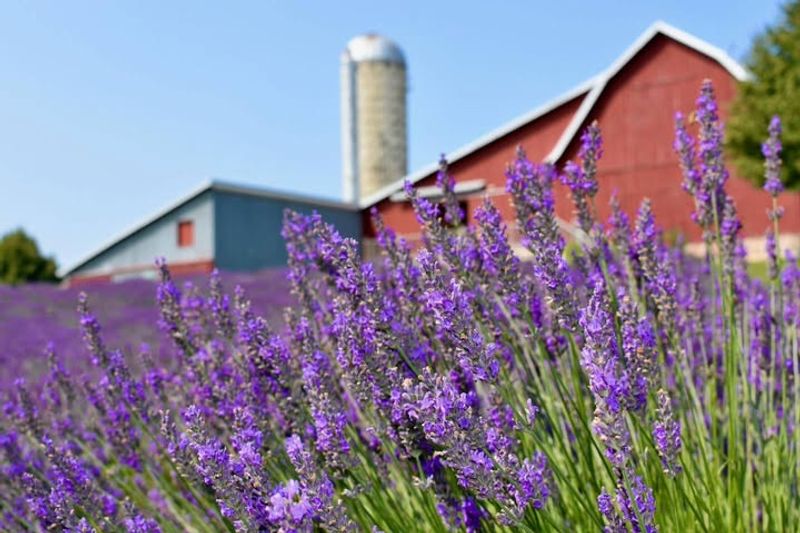
Real estate experts note that thoughtfully designed outdoor spaces increase property values. Massachusetts homes with established, fragrant gardens near patios often attract more buyer interest.
Lavender’s combination of beauty, fragrance, and perennial nature makes it particularly valuable. The plant signals to potential buyers that the garden is both attractive and manageable. When considering home improvements with good ROI, lavender’s low cost and high impact make it a smart investment.

